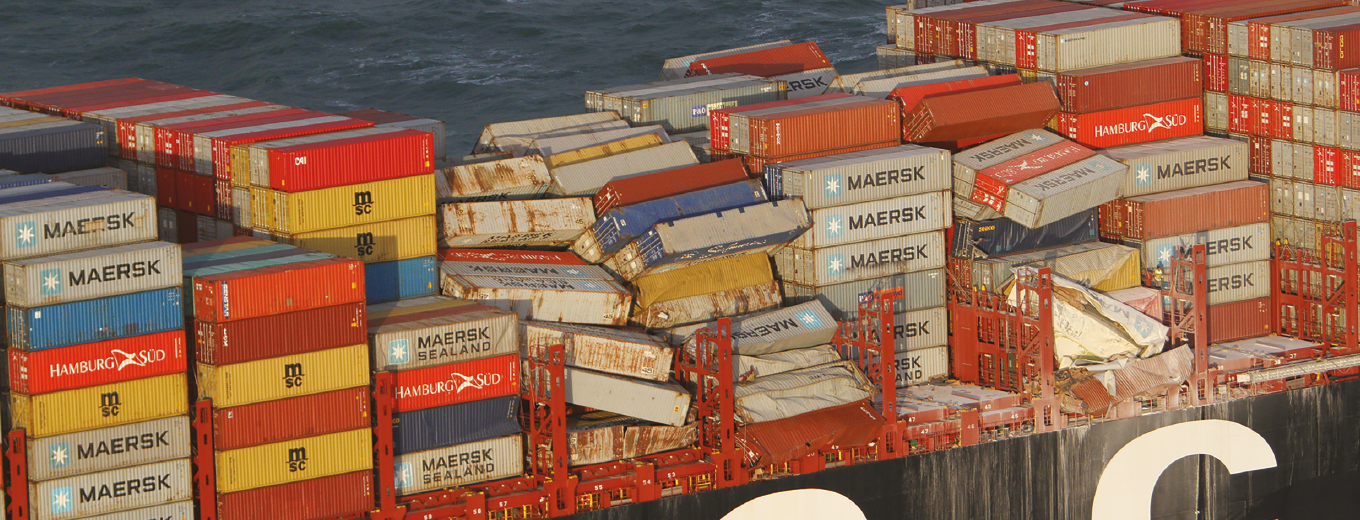Is your business ready for the unexpected? Are you prepared properly for eventualities that could derail your careful planning? If not, your organisation could be setting itself up for an extremely costly outcome. Phil Lattimore reports
International moving and relocation is a multibillion-dollar industry, conveying an enormous quantity of goods across all continents, in all conditions and using almost all transport modes. It employs a diverse supply chain, with many small- and medium-sized companies working alongside larger, multinational ones, in transportation networks spanning the globe. Consequently, international moving and relocation firms navigate a complex matrix of risk in their business every day – packing, storing and transporting customers’ goods across borders and often working with partners across different jurisdictions.
No matter whether the supply chain is robust and rigorously tested, things can go wrong – and operators must be ready to mitigate the negative impact this might have on their business operations, as well as those of their clients.
Daily challenges
Natural disasters may grab the headlines and create extreme challenges for businesses, and global relocation operators – by their very nature – can find themselves in situations requiring dynamic reassessments of risk, to ensure they are prepared for changing circumstances in their regular, day-to-day operations. This could range from managing supply-chain risk in an existing market to evaluating risk in new territories, assessing the impact of regulatory or legal requirements, or facing the challenges posed by sanctions, industrial disputes or transport disruption.
Malcolm Pearson is Managing Director of Reason Global, a leading, UK-based specialist in insurance for the global moving, self-storage and relocation industries. ‘Risk-management assessments of all processes within an international moving company are crucial to ensure a professional approach and to prepare as much as possible for the unexpected,’ he says. ‘As well as the relevant assessments of warehousing, office environments and staff safety, there is also the protection of staff working in customers’ homes, and of the customers’ goods when being packed and moved.’
Additionally, when goods are moved internationally, there are often multiple parties involved in the transportation, increasing the chances that things could go wrong.
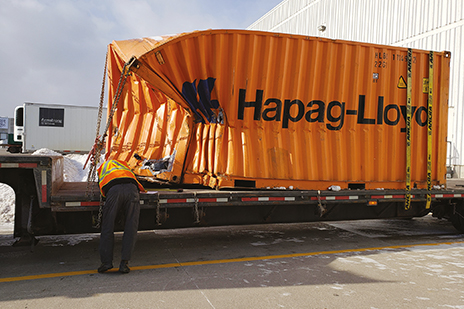
The FAIM Standard puts a strong emphasis on supply chain and risk management and FIDI affiliated companies have to prove that they have procedures in place to mitigate, as much as possible, any potential risk.
‘Obviously, reputable companies have settled supply chains and good processes and training, but shipments to new territories can present challenges in controlling that supply chain, and can bring accidents that could not be foreseen,’ Pearson says. Insurance, therefore, plays a vital role in protecting premises, staff and clients’ goods.
Risk-management processes should be reviewed at least annually, or when major changes occur, says Pearson. ‘Also, taking on new contracts is an important time to review limits of liability that are agreed within that contract, separate from a company’s standard trading conditions.’
‘Risk management and insurance should play a key role in an international moving or relocation business, because it is an extension of the service they are providing,’ says Susy Castellanos, Senior Vice President of Client Services, Unirisc. ‘A proper risk-management and insurance partner will advise international movers and relocation businesses of best practices and industry benchmarks against which they can measure their policy.’
“As well as assessments of warehousing, staff safety and office environments, there is the protection of staff working in clients’ homes and of goods being packed and moved”
Risk management: the basics
There are standardised approaches to preparing businesses for the unexpected through effective risk-management processes. While variations and specialisations are encountered, depending on the type of company or industry involved, the basics remain consistent and apply to the relocation and moving industry.
Boris Populoh is Head of Relocation Risk at Willis Towers Watson, a leading multinational risk-management, insurance brokerage and advisory group. ‘To start with,’ he explains, ‘you need to identify the risk – or risks – so you understand what it is. Once the risk or risks have been identified, they should be ranked and prioritised, to establish their individual, potential severity and the subsequent disruptive impact they could have on vital business functions if they were to actualise.’
After risks have been identified and ranked, a more detailed risk analysis should follow, he adds. ‘During that process, the overall scope of the risk should be established, and connections between the risk and different company procedures and operational components should be identified. After the various risk components are identified and understood, management – with the support of a risk-management professional – can decide how to address the risks.’
Generally speaking, there are five standard ways to mitigate risk, which include avoiding it altogether by eliminating those business factors that could lead to actualisation. ‘A business could decide to simply accept and retain the risk, and operate by being cognisant of the potential impact the risk may have on its operation,’ Populoh says.
Other actions include reducing the exposure to the risk, sharing the potential impact of the risk, or transferring it by buying insurance – thereby shifting the exposure to another party.
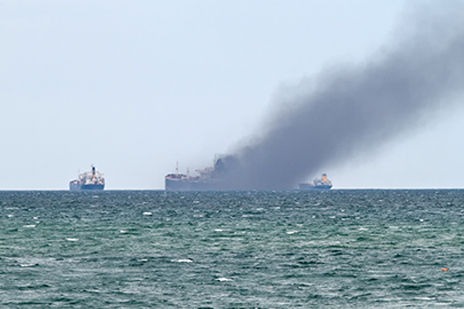
Last, but not least, Populoh says: ‘Risks must be monitored and reviewed in order to be able to respond to a change in the profile of a specific risk and/or identify a potential new risk that had previously remained hidden.’
Risky business
In any industry where margins are under pressure, there may be a temptation to look at reducing costs that appear non-productive – such as insurance – and perhaps seek a more competitive solution for the cover your business requires. This could be a critical error, however.
‘One of the most common and devastating mistakes that moving and relocation businesses can make is using price as the primary factor when selecting a broker. The lowest price can sometimes indicate a sacrifice in either the quality of coverage or the level of customer service a broker will provide,’ Castellanos says.
“The weather can play a significant part, too, as well as errors or failures by third parties, such as shipping lines”
Pearson agrees. ‘Not using a specialist broker or insurer who truly understands the moving industry and, so, can handle claims appropriately is a common mistake. It is not uncommon to hear that the claims handlers don’t understand claims and don’t deal with them effectively, harming the [relocation] company’s reputation [with clients] in the process.
‘When companies look to join FIDI, they discover they are required to have insurances not presently in place – and this shows the quality of the FIDI approach, and the importance of a broker and insurer who can offer the right solutions.’
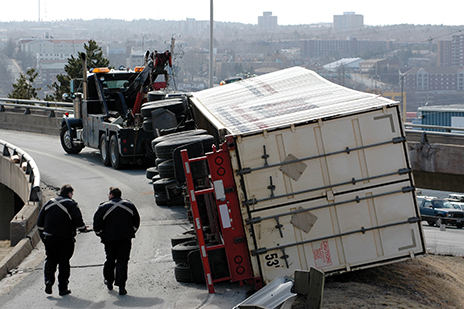
Of course, it’s only when things do go wrong that the true value of the insurance selection process becomes apparent, says Pearson. ‘Insurance proves its value when claims occur, and using a specialist who really understands the particular challenges of the industry is always beneficial.’
Selecting a broker purely on price can be driven by the desire to be competitive when offering prices to a potential client. ‘What companies that do this fail to recognise,’ says Castellanos, ‘is the effect it will have on their ability to generate repeat business from the same client if that client is unhappy with the results of a poorly handled claim.’
The claim game
Castellanos warns of other issues that can affect companies as a result of not educating customers on how to value their goods properly, which can lead to undervaluation of shipments for insurance.
Not documenting pre-existing damage correctly can also affect claims.
‘Allowing customers to undervalue their goods and not document pre-existing damage properly is a result of not understanding the importance that these pieces of information can have on an insurance broker’s ability to place coverage and settle claims properly,’ she says. ‘Having an experienced insurance partner that has expertise in relocation and moving insurance can help a moving company and relocation business minimise these mistakes.’
Not fully appreciating different elements of risk, and not preparing for them properly, is another common error businesses make. Populoh explains: ‘It’s the classic “it won’t happen to me” mindset, believing just because a risk hasn’t actualised in the past 20 years, it won’t do so this year – or ever.’
“People continue to play the lottery even though the chance of winning is miniscule. Take the same approach when it comes to risk”
He explains that there are two basic types of risk: fortuitous and systemic. ‘Fortuitous risk manifests itself unexpectedly, and is unplanned and very difficult to predict,’ Populoh says. ‘While you might say that all risk is unexpected –and certainly unplanned – the fact that chance is the primary characteristic of fortuitous risk necessitates good understanding and appropriate management before potential consequences of the risk manifest themselves.
‘On the other hand, systemic risk – as the name implies – is a type of risk that is system, industry or organisation-wide, and usually comprises various factors, including people, policies, procedures, materials or tools used. Systemic risk is the outcome of organisational failure as the result of one or more of these factors. Unlike fortuitous risk, it can be identified in an organisation and should, therefore, be managed accordingly, to minimise its potential impact.’
The primary factor that contributes to mistakes in risk management is a lack of planning and preparation – and believing that a risk is not likely to manifest itself because it hasn’t done so in the past is unwise. ‘People continue to play the lottery even though the chance of winning is miniscule,’ says Populoh. ‘Take the same approach when it comes to risk. It’s not necessarily likely that a major fortuitous risk event will impact your business, but there is certainly a chance, and that chance is higher than you winning the lottery. So you might as well prepare, just in case, because you don’t want to win the risk lottery without being prepared.’
Getting it right
When an international moving and relocation firm misjudges its risk-management and insurance requirements, it can have a financial and reputational impact on the business. If customers are dissatisfied by claim rejections, resulting from inadequate coverage, the moving company risks needing to pay out of its own pocket to settle claims or potentially losing clients as a result.
‘Ensuring that you have the right types of coverage in place is what makes selecting the right relocation insurance and risk management partner so critical,’ says Castellanos, of Unirisc. ‘If you partner with an insurance broker that specialises in relocation and moving insurance, they can help guide you in your coverage choices using historical claims data. Without the right coverage in place, it could negate even the best attempts at customer service, as it is inevitable that more denials will occur when inadequate coverage is in place.’
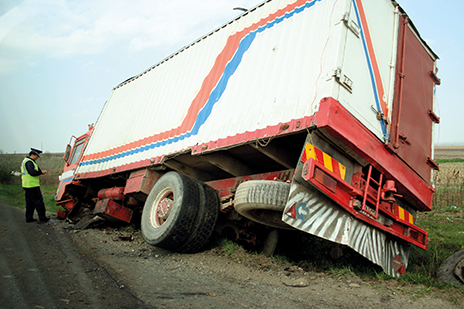
A reputable broker will not look to sell you cover you do not need, says Pearson, of Reason Global. Instead, he says: ‘They will perform a full “demands and needs analysis” and present you with a detailed report clarifying what has been looked at and any relevant recommendations.’
If a company gets this wrong and there are gaps in cover, the potential exposure can be financially significant, he adds. ‘That is not scaremongering – just fact, whether it relates to the goods themselves, the transportation used at each stage of the journey, customs inspections performed with little care, or incidents at sea.’
Challenges for the moving sector
Compared with other sectors, there are some key areas for international moving companies to consider, such as relocations to high-risk territories and new markets that were previously considered uninsurable.
‘These factors move and change with geopolitical and economic circumstance, and a moving company should always be reviewing them,’ Pearson says. ‘For example, there are some areas of Africa and Central America previously considered uninsurable territories, but – as these areas open up and their economies develop – insurers’ appetites are changing. Again, a good broker will work on these areas with you to arrange cover wherever possible. With international shipments, the weather can play a significant part, too, as can errors or failures by third parties, such as shipping lines, as seen in news reports of recent incidents at sea and ports.’
“Risk management and insurance should play a key role in an international moving or relocation business, as it is an extension of the services they are providing”
An annual review with a specialist broker should assess how the business has developed or changed in the previous 12 months and make recommendations accordingly. ‘Getting the right advice is crucial and this is where a reputable broker with industry knowledge will assist.’
Continuity
Risk management and insurance should inform part of any continuity planning strategy to mitigate the impact on your business of a serious unexpected event. ‘A good business continuity plan covers far more than just insurable risks, but insurance should form a large part of the thinking when preparing it,’ Pearson explains.
‘Insurance for day-to-day moving of goods is vital, but damage to company buildings and the goods within, terrorist incidents and cyber attacks can have a devastating effect on a business. A comprehensive set of covers – including business interruption insurance – can be the difference between a company surviving or not after a catastrophic event.’ While risk management surveys are sometimes seen as an inconvenience to a business operating in a busy environment, ‘they can deliver excellent advice and recommendations to minimise risk’.

